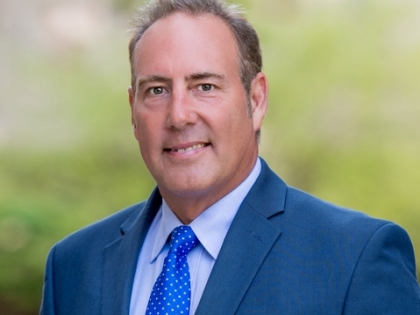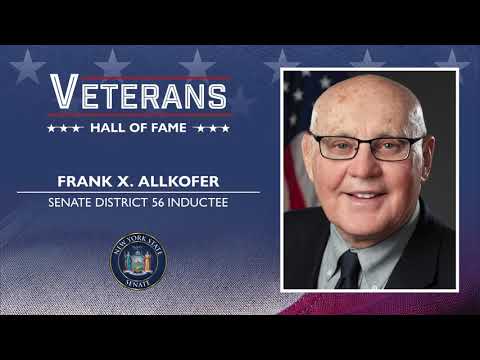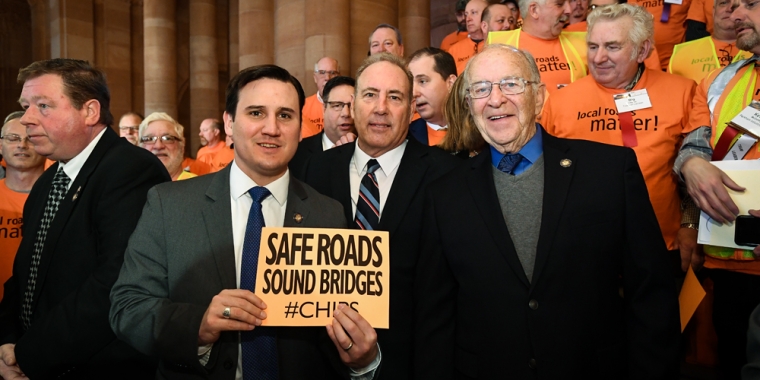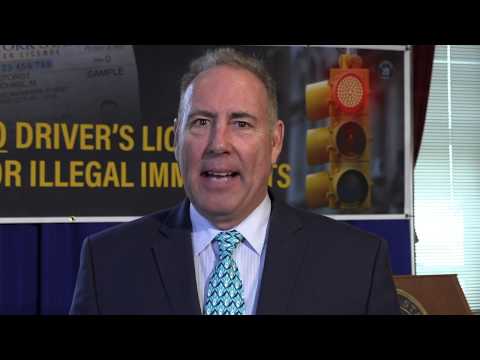
Robach Legislation Creating New Agency To Aid The Hearing Impaired Signed Into Law
Senator Joe Robach announced today that legislation he sponsored in the State Senate designed to improve the delivery and development of services for New York’s deaf, deaf-blind and hard-of-hearing citizens was signed into law by the Governor. The bill, which passed unanimously in the Senate, was sponsored in the Assembly by Assemblyman Joe Morelle and also passed unanimously in that house.
Senator Robach said, "I was proud to sponsor this bill in the State Senate and to have fought for its passage. This new law will provide a discussion focus on the delivery of comprehensive services for medical, housing, transportation, technology supports, personal care, family supports, and day programs for the deaf, deaf-blind and hard-of-hearing."
Robach said the legislation (S.1923-A/A.2461-A) establishes the Interagency Council for services to persons who are deaf, deaf-blind and hard-of-hearing. This Council will include State agency representatives and people with hearing loss and will have numerous functions toward improving services provided to people with hearing loss. The Council would be responsible for maintaining data about the needs of deaf, deaf-blind and hard-of-hearing and making policy recommendations to the governor and legislature.
Robach added, "The Interagency Council will work to identify the needs of these individuals and will establish a more efficient matching of these needs to State resources. The fact that the council will consist of members from the hearing impaired community will ensure that these services are responsive to their special needs."
"On behalf of the Empire State Association for the Deaf (ESAD)," said ESAD Board of Directors, "we are pleased this all-important law will provide a tremendous opportunity with much needed advocacy and services to enhance the quality of life for Deaf, Deaf-Blind and Hard of Hearing New Yorkers alike."
T. Alan Hurwitz, RIT Vice President, CEO and Dean of NTID said, "I am pleased to see that Governor Spitzer has signed the bill to establish a state interagency council for deaf, deaf-blind, and hard-of-hearing individuals. I recognize that this is principally the work of Senator Joe Robach and Assemblyman Joe Morelle and I thank them for their staunch support of this important bill."
Hurwitz added, "Personally and professionally, I know that this new law will benefit the members of the deaf, deaf-blind, and hard-of-hearing community. With the establishment of this council, those individuals will have a viable organization to work with at the State level, and will have continuing support and advocacy in the collaborations so often needed between multiple state agencies."
Dean DeRusso, Deaf Systems Advocate for the Regional Center for Independent Living said, "We are very excited that Governor Elliot Spitzer and the Legislature have recognized the need to improve New York's services to its deaf, hard of hearing and deaf-blind citizens and have taken action. For our community, this is a sign that we will be involved with government like never before."
This law effectively amends the Mental Hygiene Law by adding a new section 45.21 to create a New York State Interagency Coordinating Council for Services to persons who are Deaf, Deaf-Blind or Hard-of-Hearing.
The Interagency Coordinating Council would be administered by the New York State Commission on Quality of Care & Advocacy to Persons with Disabilities (CQCAPD).
The Council will include seven agency heads or their designees from the following agencies: the chairperson of the NYS CQCAPD, who will also serve as the chair of this council, the Public Service Commission, the Offices of Children & Family Services, Aging, and the Departments of Education, Health, and Labor.
In addition to the agency representatives, the Council will include eight representatives appointed by the Governor and the State Legislature.
Functions of the Interagency Coordinating Council and the NYS CQCAPD would include:
1) Promotion of a statewide program for coordinated services to persons who are deaf, deaf-blind and hard of hearing;
2) Maintenance of data on the incidence of deafness, deaf-blindness and other hearing loss;
3) Serve as a clearinghouse of information on available Services;
4) Dissemination of service information;
5) Receipt of complaints affecting the deaf, deaf-blind and hard of hearing;
6) Ongoing evaluation of the needs of the deaf, deaf-blind and hard of hearing communities, including technology;
7) Reporting to the Governor and State Legislature beginning on or before November 1, 2009 with advisement on policy, legislative initiatives and, by the third year of funding, the development of a uniform statewide plan.
Robach concluded, "I was pleased to champion the effort to create this panel to empower people living with hearing disabilities and to improve the implementation of services to those in need, both in Rochester and across the state. As the father of a child with a hearing disability, I know the challenges that individuals who are deaf, deaf-blind or hard-of-hearing face and I know that this law will significantly enhance the delivery of these much needed services in our community."



